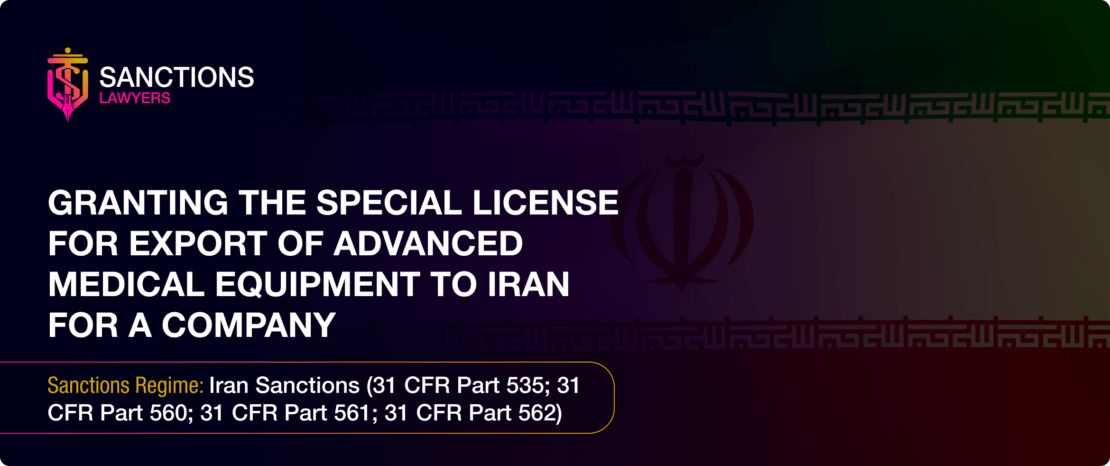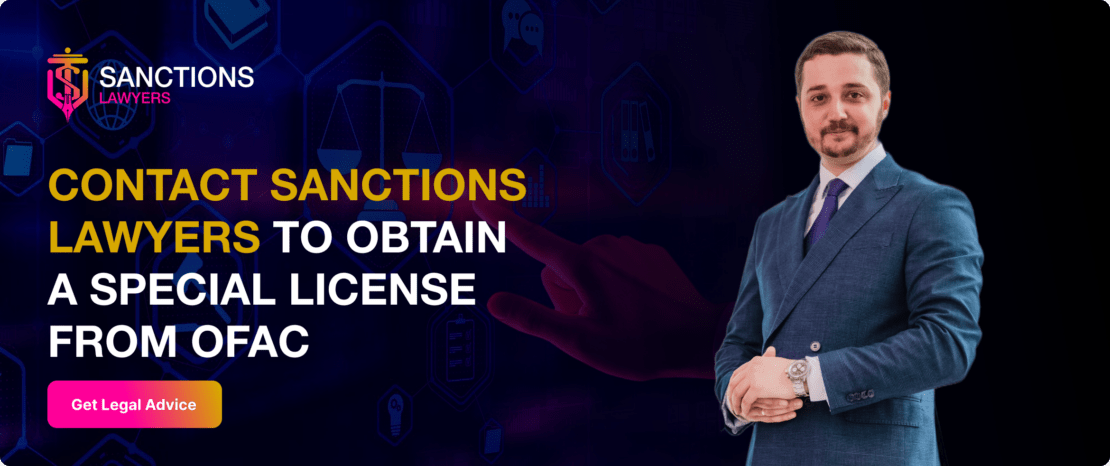
Refer to Related Case Documents: E.O. 13876, E.O. 13846, the International Emergency Economic Powers Act (IEEPA), 50 U.S.C. §§ 1701-1706; Comprehensive Iran Sanctions, Accountability, and Divestment Act of 2010, Public Law 111-195, As Amended Through Public Law 112-239, Enacted January 2, 2013; Iran Freedom and Counter-Proliferation Act of 2012 (IFCA), Public Law 112-239; Countering America’s Adversaries Through Sanctions Act (CAATSA), Public Law 115-44; National Emergencies Act (NEA), 50 U.S.C. §§ 1601-1651
Case Background
The client in this case was Company [Confidential], a German-registered company engaged in the production and export of medical equipment. In the context of the COVID-19 pandemic, the company sought to establish the supply of certain products, including Ventilators, Mobile Diagnostic Systems, and Robotic Surgical Systems, to Iran (high-risk jurisdiction).
Legal Assistance Rendered
Initially, it was determined that the Ventilators were certified under ISO 13485 (Quality Management Systems for Medical Devices) and IEC 60601-1 (Medical Electrical Equipment) with an ECCN (Export Control Classification Number): 3A991 (in accordance with Export Administration Regulations, EAR); Mobile diagnostic systems were certified under ISO 13485 and IEC 60601-1-2 (Electromagnetic Compatibility – Requirements and Tests) with an ECCN: 3A981 (in accordance with EAR); Robotic surgical systems were certified under ISO 13485, IEC 60601-1, and specific standards for robotic surgical systems such as ISO 14708-1 (Active Implantable Medical Devices – General Requirements for Safety, Marking, and Information) with an ECCN: 3A611 (in accordance with EAR).
After analyzing the regulations, it was determined that devices classified under ECCN 3A991, 3A981, and 3A611 require special consideration and licensing for export to Iran, as they do not fall under the General Licenses issued by OFAC (OFAC issues General Licenses that permit certain activities without the need for an individual (Special) License). We informed the client that: General License E (GL E) – Authorizing Certain Services in Support of Nongovernmental Organizations’ Activities in Iran, allowing NGOs to provide certain services in support of humanitarian activities in Iran, is not applicable as the activities of Company [Confidential] do not fall under the definition of humanitarian aid provided by NGOs and are commercial in nature. General License I (GL I) – Authorizing Certain Transactions Related to the Exportation or Reexportation of Agricultural Commodities, Medicine, Medical Devices, or Replacement Parts, allowing certain transactions related to the export or reexport of agricultural commodities, medicines, medical devices, or replacement parts, is also not applicable as it only applies to basic medical devices and medicines and does not include the specialized equipment manufactured by our client.
- We submitted a request for a Special License from OFAC. Our strategy included emphasizing that the equipment classified under 3A991, 3A981, and 3A611 is intended to save lives and improve healthcare, especially in the context of the COVID-19 pandemic. We conducted an audit of the manufacturing processes and prepared documentation proving that the end-users and partners in Iran are not under sanctions and are not connected to prohibited persons or organizations, along with other documents not disclosed to prevent competitive advantage.
- During the application review period, additional checks and requests for clarifications and further data were conducted by OFAC. On behalf of the client, we actively interacted with OFAC, providing all necessary information and explanations.
- As a result, OFAC issued a special license allowing Company [Confidential] to export medical equipment to Iran. The company’s legal support continues.


